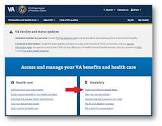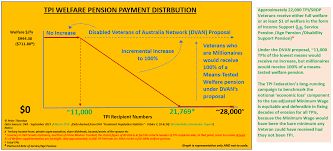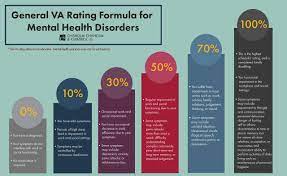Title: Navigating the VA Claim Process: A Guide for Veterans
Introduction:
Filing a VA claim can be a complex and sometimes overwhelming process for veterans seeking benefits and support. However, understanding the steps involved and having the right information at hand can greatly improve your chances of a successful claim. In this article, we will provide you with a comprehensive guide to help you navigate through the VA claim process.
Gather Necessary Documents:
Before initiating your claim, it is essential to gather all relevant documents pertaining to your military service, medical records, and any supporting evidence related to your claim. This includes discharge papers, service treatment records, and any private medical records that may support your case.
Determine Eligibility:
The next step is determining your eligibility for VA benefits. The Department of Veterans Affairs provides benefits for various conditions such as disabilities resulting from military service, pension programs for low-income veterans, education assistance, housing loans, and more. Understanding which benefits you are eligible for will ensure you file the correct type of claim.
Choose the Right Claim Type:
There are different types of claims available depending on your circumstances. The most common types include compensation claims for service-connected disabilities or injuries, pension claims based on financial need or age/disability requirements, and dependency claims for family members of deceased veterans. Selecting the appropriate claim type is crucial in order to receive the maximum benefits you are entitled to.
File Your Claim:
Once you have gathered all necessary documents and determined eligibility, it’s time to file your claim with the VA. You can choose to file online through the eBenefits portal or submit a paper application via mail or in-person at a regional VA office. Ensure that you provide accurate information and include all relevant supporting documents to strengthen your case.
Patience is Key:
After submitting your claim, it’s important to be patient during the processing period as it can take several months or even longer for the VA to review and make a decision. However, you can check the status of your claim online or contact the VA for updates. Remember to promptly respond to any requests for additional information or exams to avoid delays.
Seek Assistance:
If you find the process overwhelming or need guidance, don’t hesitate to seek assistance from qualified professionals. Veterans Service Organizations (VSOs) and accredited agents or attorneys can provide valuable support throughout the claim process, ensuring that you have the best chance of success.
Conclusion:
Filing a VA claim may seem daunting, but with proper understanding and preparation, you can navigate through the process successfully. By gathering all necessary documents, determining eligibility, choosing the right claim type, filing accurately, being patient during processing, and seeking assistance when needed, you can increase your chances of receiving the benefits and support you deserve as a veteran. Remember, your service deserves recognition and support – don’t hesitate to take advantage of the resources available to you through the VA.
Common Questions About Filing a VA Claim: A Guide to the Process, Required Documents, Eligible Benefits, and Claim Status
- How do I file a VA claim?
- How long does it take to process my VA claim?
- What documents do I need to submit with my VA claim?
- What benefits am I eligible for through my VA claim?
- What is the status of my VA claim?
How do I file a VA claim?
Filing a VA claim involves several steps. Here is a general guide on how to file a VA claim:
- Gather necessary documents: Collect all relevant documents related to your military service, medical records, and supporting evidence for your claim. This may include discharge papers, service treatment records, private medical records, and any other documentation that supports your case.
- Determine eligibility: Understand the benefits you may be eligible for based on your circumstances. The Department of Veterans Affairs provides benefits for various conditions such as disabilities resulting from military service, pension programs for low-income veterans, education assistance, housing loans, and more.
- Choose the right claim type: Select the appropriate claim type based on your situation. Common types include compensation claims for service-connected disabilities or injuries, pension claims based on financial need or age/disability requirements, and dependency claims for family members of deceased veterans.
- Prepare your claim: Complete the necessary forms and gather all required information. You can file online through the eBenefits portal or submit a paper application via mail or in-person at a regional VA office. Ensure that you provide accurate information and include all relevant supporting documents to strengthen your case.
- Submit your claim: Once you have prepared your claim, submit it to the VA according to the chosen method (online or by mail/in-person). Keep copies of all documents submitted for future reference.
- Monitor the status of your claim: It is important to be patient during the processing period as it can take time for the VA to review and make a decision on your claim. You can check the status of your claim online through the eBenefits portal or contact the VA for updates.
- Respond to requests for additional information: If the VA requires more information or exams related to your claim, promptly respond to their requests in order to avoid delays in processing.
- Seek assistance if needed: If you find the process overwhelming or need guidance at any point, consider seeking assistance from qualified professionals. Veterans Service Organizations (VSOs), accredited agents, or attorneys can provide valuable support throughout the claim process.
Remember that each claim is unique, and it’s important to follow the specific instructions provided by the VA. The process may vary depending on your circumstances and the type of claim you are filing.
How long does it take to process my VA claim?
The processing time for VA claims can vary depending on several factors, including the complexity of your claim, the type of benefit you are applying for, the volume of claims being processed at the time, and any additional information or evidence required to support your claim. It is important to note that each claim is unique and may require different levels of review.
On average, the VA aims to process claims within 125 days. However, it is not uncommon for claims to take longer, sometimes extending beyond a year or more. Complex claims that require additional evidence or multiple reviews may take longer to process.
To get a better estimate of processing times for your specific claim, you can check the VA’s “Benefits Delivery at Discharge” (BDD) program if you are separating from military service or use the VA’s online tool called “Check Your Claims Status” to track the progress of your claim.
While waiting for a decision on your claim, it is important to stay proactive and responsive to any requests for additional information or examinations from the VA. This can help prevent unnecessary delays in processing your claim.
If you have concerns about the status or timeline of your claim, it is recommended to reach out to a Veterans Service Organization (VSO) or contact the VA directly for assistance and updates on your specific case.
What documents do I need to submit with my VA claim?
When filing a VA claim, it is important to include supporting documents to strengthen your case. While the specific documents required may vary depending on the type of claim you are filing, here are some common documents that veterans typically need to submit:
- Discharge Papers: Provide a copy of your DD Form 214 or other separation documents. These papers verify your military service and type of discharge.
- Service Treatment Records: Include copies of your medical records from your time in the military. These records should document any injuries, illnesses, or conditions that are relevant to your claim.
- Private Medical Records: If you have received medical treatment outside of the military, such as from civilian doctors or hospitals, include copies of these records as well. They can provide additional evidence supporting your claim.
- Dependency Documents: If you are filing a dependency claim for benefits related to family members, you will need to provide marriage certificates, birth certificates for children, and any other relevant documentation proving their relationship to you.
- Financial Information: For pension claims based on financial need, you may need to submit financial statements, tax returns, and other documentation that demonstrates your income and assets.
- Nexus Letters or Medical Opinions: In some cases, it may be helpful to include letters from medical professionals or specialists linking your current condition directly to your military service. These letters should explain the connection between your condition and the events or exposures during your service.
- Supporting Evidence: Any additional evidence that supports your claim should also be included. This can include photographs, incident reports, witness statements, or any other relevant documentation.
Remember that it is essential to provide accurate and complete information when submitting your VA claim. Including all necessary documents upfront can help expedite the processing time and increase the chances of a successful outcome for your claim. If you have any doubts about which specific documents are required for your particular claim type, consider seeking assistance from a Veterans Service Organization (VSO) or an accredited agent or attorney who can guide you through the process.
What benefits am I eligible for through my VA claim?
As a veteran, you may be eligible for a range of benefits through your VA claim. The specific benefits you qualify for will depend on various factors, such as your military service, the nature of your disability or condition, and your financial situation. Here are some common benefits that veterans can potentially receive:
- Disability Compensation: If you have a service-connected disability or injuries resulting from your military service, you may be eligible for disability compensation. This benefit provides monthly payments based on the severity of your disability.
- Pension: Veterans with limited income and who meet certain age or disability requirements may qualify for a pension. This is a needs-based benefit that provides financial support to eligible veterans.
- Education and Training: The VA offers educational assistance programs such as the Post-9/11 GI Bill, Montgomery GI Bill, and Vocational Rehabilitation and Employment (VR&E) program. These programs can help cover the costs of tuition, books, housing allowances, and provide vocational training.
- Healthcare: Veterans are entitled to comprehensive healthcare services through the VA healthcare system. This includes access to medical treatments, medications, mental health services, and specialized care for service-related conditions.
- Home Loans: The VA provides home loan guaranty programs that can help eligible veterans secure affordable home loans with favorable terms.
- Life Insurance: The VA offers life insurance options such as Servicemembers’ Group Life Insurance (SGLI), Veterans’ Group Life Insurance (VGLI), and Family Servicemembers’ Group Life Insurance (FSGLI). These policies provide coverage to veterans and their families.
- Burial Benefits: Veterans may be eligible for burial benefits including burial in a national cemetery, grave markers or headstones, burial flags, and reimbursement of burial expenses.
It’s important to note that eligibility requirements may vary for each benefit program. To determine your specific eligibility and understand the full range of benefits available to you, it is recommended to contact your local VA office or speak with a Veterans Service Organization (VSO) representative who can guide you through the process and provide personalized assistance based on your circumstances.
What is the status of my VA claim?
The status of your VA claim will depend on the specific details of your claim. You can check the status of your claim by contacting the VA or by visiting their website.




